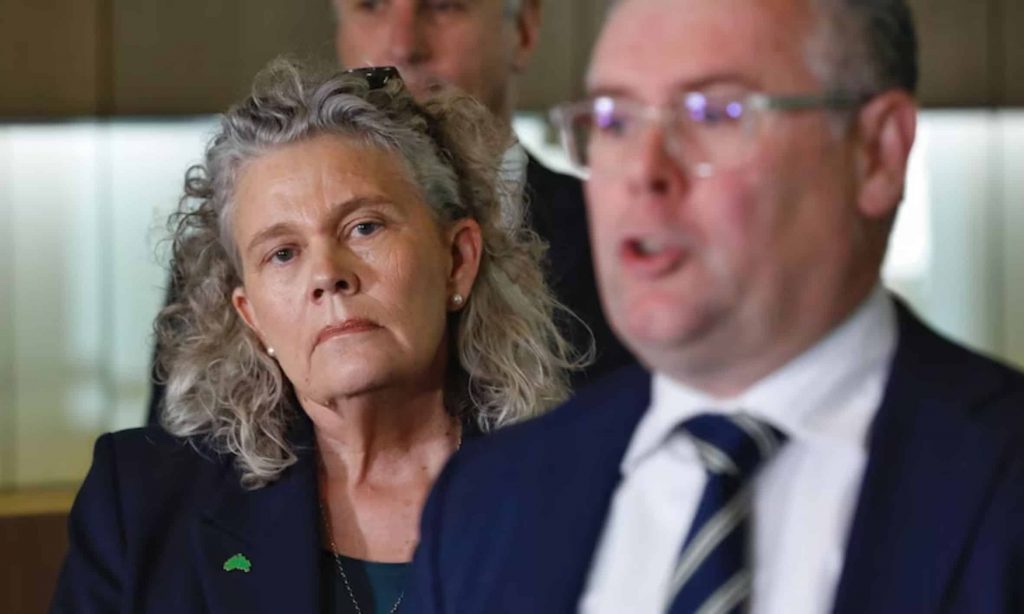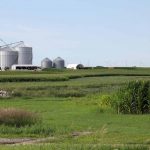
Key points:
- The federal budget looks set to include a new funding model for biosecurity
- That change will likely include new charges on both imports and exports
- A growing threat of pests and diseases increases the need for greater funding, the federal government says
Next week’s federal budget is slated to include a new funding model for biosecurity services that protect Australia from pests and disease.
The government — which has not officially confirmed the details — wants the “beneficiaries” of Australia’s clean, pest-free reputation to help fund biosecurity measures to maintain that status.
“If there are extra costs being incurred, or imposed on farmers, and that would be a real kick in the guts,” National Farmers Federation (NFF) chief executive Tony Mahar said.
“This is an export-orientated industry, a wealth-creating industry. The last thing we need is for farmers to be taxed and charged more for something they’re already paying for and the community, at large, isn’t recognising or isn’t paying for that for that service,” he said.
Since last May’s election, the NFF and federal Agriculture Minister Murray Watt have maintained a close relationship.
NFF president Fiona Simson travelled to Europe with Senator Watt over the summer, promoting Australian farming, ahead of the hotly-anticipated European Union free trade agreement.
The closeness of the farm lobby and a Labor minister caught some in the sector by surprise, especially in light of the Albanese government’s plans to shut down live sheep exports and reduce the amount of water available to irrigators in the Murray Darling Basin.
Almost three years after the federal court found a Commonwealth ban on live cattle exports in 2011 was unlawful, the NFF has previously accused the federal government of deliberately delaying paying compensation to cattlemen.
Despite that, the relationship between the NFF and the Albanese government has remained close.
However, it’s the looming additional charges for exports that have attracted the greatest ire from farmers.
“That would be a huge disappointment,” Mr Mahar said.
“If, for example, a beekeeper has just had to burn their hives because of varroa mite, is the government saying if they’re going to put more charges on farmers?
“Is the government saying that that a beekeeper, who’s had to burn his or her hives, is now going to have to be charged more taxes and more and more charges for that purposes?
“Or, should we be looking at the actual ship that brought in the varroa mite that caused that beekeeper to burn his or her hives?
“What we’re looking at here is who’s created the problem and who’s borne the brunt of a biosecurity breach? … If there’s more charges being put on people like that, that would be outrageous. And it would be unrealistic and unreasonable for farmers to actually have to pay costs in that regard.”
The new levy is an expansion of an abandoned biosecurity program the former Coalition government failed to establish.
In 2018, then-agriculture minister David Littleproud announced a $10 per shipping container — or $1 per tonne of raw freight — import charge that would raise $325 million over three years.
It was never introduced and, in 2019, the federal Department of Agriculture declared “an alternative levy will not be progressed”.
Senator Watt has repeatedly talked about the need for a new funding model for biosecurity.
The son of a one-time North Queensland dairy farmer and cane cutter, Senator Watt has repeatedly told farm groups a new funding model was needed.
“We need to lock in a more sustainable way of funding our biosecurity system, with predictable funding from year to year, rather than continue relying on the temporary funding injections that we have seen over the past few decades,” Senator Watt told the NFF Members Council last month.
“At the same time, we need to lock in a fair system of paying for it, that shares the cost between taxpayers, risk creators and beneficiaries of the system.”



















